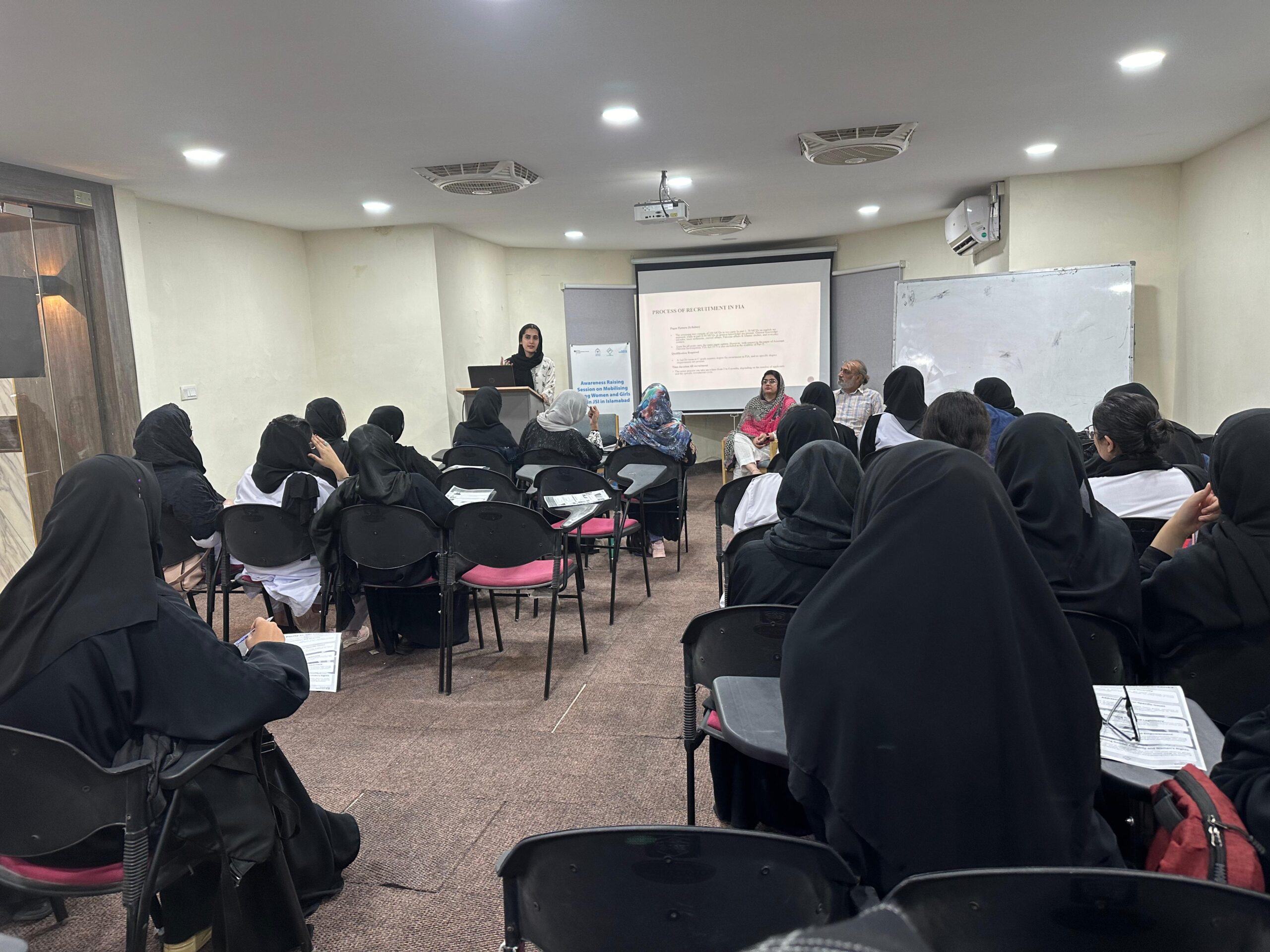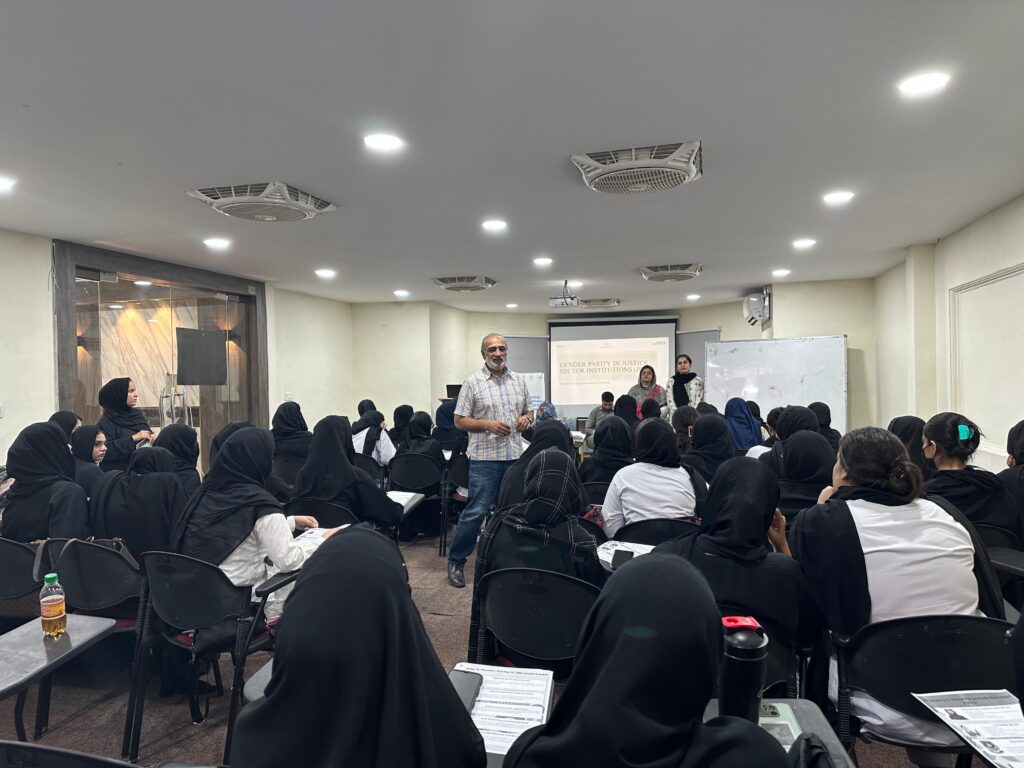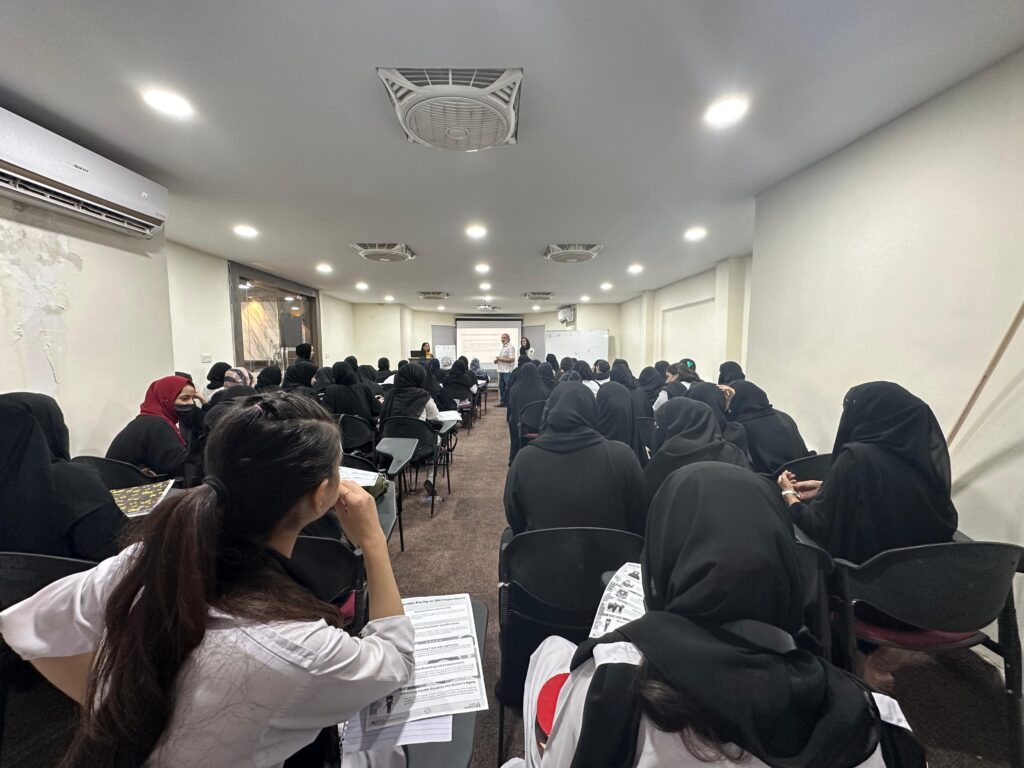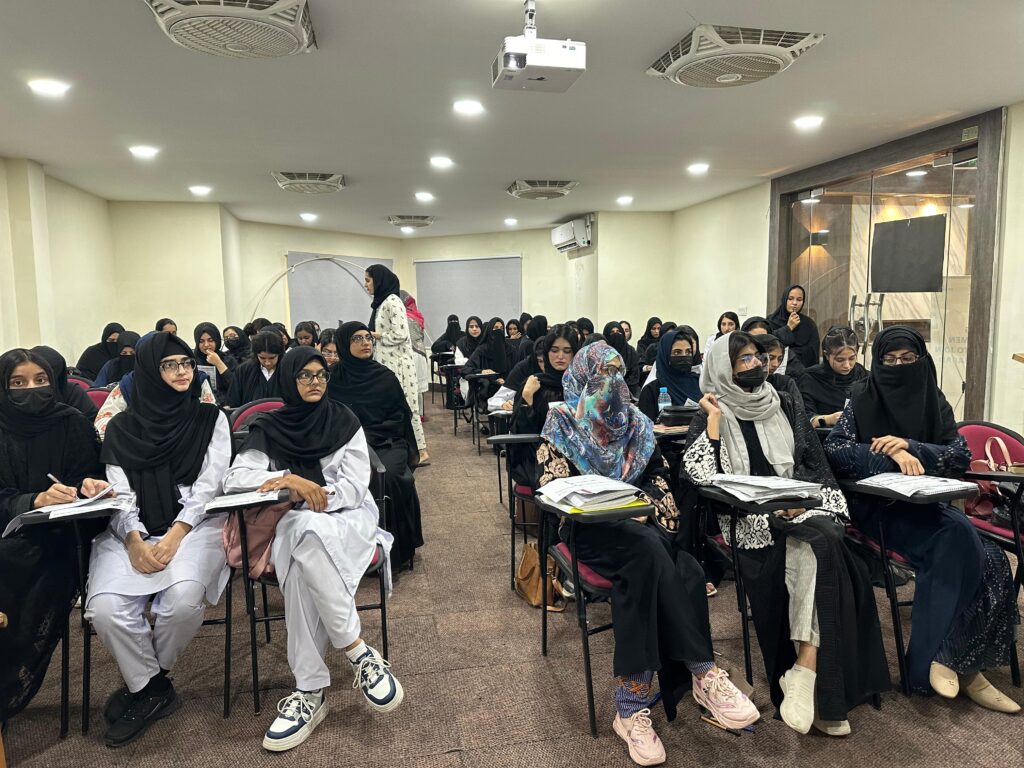
On October 11th, 2024, Sungi Development Foundation (SDF) in collaboration with UN Women organized an Orientation Session at Riphah Institute of Public Policy, Islamabad, under the Gender Parity in Justice Sector Institutions (JSI) project. This event aimed to inspire and mobilize young women to consider careers within the Islamabad Police and broader justice sector institutions. With a remarkable turnout of 60 female participants, this session marked a significant step in breaking down cultural barriers and promoting gender equality within law enforcement.

The session, led by facilitators Nayyer Bukhari, Tamseel Aqdas, Hafsa Shakoor, and Rabia Kaleem, provided the participants with crucial insights into the process of joining the Islamabad Police as Assistant Sub-Inspectors (ASI) and Constables. It also emphasized the importance of female representation in the justice system, particularly in roles traditionally dominated by men. Throughout the session, participants engaged in dynamic discussions on the challenges faced by women entering law enforcement, the societal benefits of female participation, and how the Gender Parity in JSI project aims to address these issues.
Key Objectives of the Session:
- Raising Awareness: Educate participants on the eligibility criteria and recruitment process for joining the Islamabad Police.
- Breaking Cultural Barriers: Address misconceptions and cultural challenges that hinder women from pursuing careers in law enforcement.
- Promoting Female Representation: Highlight the significance of increasing female participation in JSI and other law enforcement departments to ensure diversity and inclusivity.
- Future Training Opportunities: Provide information on future training sessions conducted by SDF to prepare women with the necessary skills and physical strength required for joining the police force.
The session commenced with an introduction to Sungi Development Foundation and UN Women, followed by an overview of the Gender Parity in JSI project. The facilitators then discussed the significance of female representation in the police force and how it can create a more just and inclusive system. The recruitment process for ASI and Constable positions within the Islamabad Police was explained in detail, after which the floor was opened for a question-and-answer session. Participants expressed their concerns and received valuable guidance on overcoming challenges associated with joining law enforcement.

Despite the success of the session, challenges arose during the mobilization process, particularly due to resistance from the university administration. Law enforcement is still perceived as an unconventional career choice for young women, which led to initial hesitations. However, through preliminary discussions with the university faculty and administration, SDF emphasized the importance of women’s roles in the justice sector as agents of change. As a result, the university agreed to support the session, allowing students to attend and benefit from the orientation.
Moving ahead, Sungi Development Foundation will continue to build on the momentum generated by this session by deepening collaborations with educational institutions like Riphah Institute of Public Policy. The focus will be on providing sustained support to young women through workshops, career fairs, and mentorship programs, which will help them confidently pursue careers in law enforcement. Additionally, the establishment of mentorship networks with female officers will serve as a valuable resource for these aspiring candidates, offering practical guidance and motivation. SDF and UN Women will also work to address cultural misconceptions surrounding women in law enforcement through continued advocacy and awareness campaigns.

The orientation session at Riphah Institute of Public Policy represents a pivotal moment in the journey toward achieving gender parity in Pakistan’s justice sector. By addressing the recruitment process and cultural barriers, this session empowered young women to envision themselves as integral contributors to law enforcement. The high female turnout is a reflection of the growing interest in non-traditional career paths, particularly within the Islamabad Police. Moving forward, continued efforts, such as engaging educational institutions and providing support networks, will be crucial in sustaining this movement and creating more inclusive opportunities for women in the justice sector.

